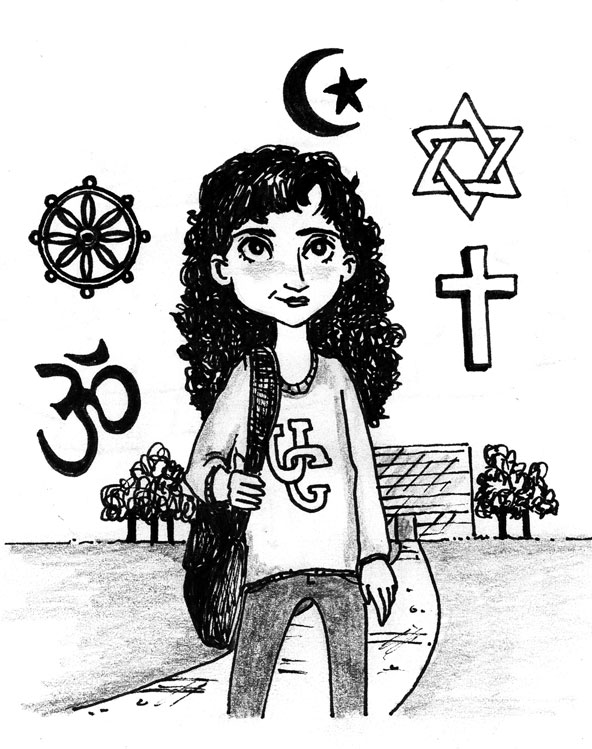
Major religions missing chaplains on campus
The Faith and Spirituality Centre (FSC) at the University of Calgary has nine chaplains. Seven of them preach some variation of Christianity — Lutheran, Catholic, Pentecostal and Baptist —while the other two are Muslim and Buddhist. There’s a noticeable absence of some well established religions, like Judaism or Hinduism.
This isn’t necessarily the fault of the FSC. Chaplains are paid by their own communities. It’s easy to understand why a religious community with a small number of students on campus or a large support network in the city might decline to offer a chaplaincy at the U of C, especially when the community’s money could be spent elsewhere.
But if your religion has a firmly established presence at the U of C, you probably aren’t struggling with a lack of services or spiritual guidance. Christian students undoubtedly receive the largest amount of support from organizations like the FSC, when they require far fewer services.
It’s a poorly thought out system. Having communities providing their own chaplains favours students from wealthier and well-established religious communities.
Students from smaller and poorer religious communities experience the most inconvenience when trying to adapt their religious traditions to a secular university. Communities that don’t have the means to establish residencies at the FSC are usually those which could use the most support.
Canadian culture is firmly secular. But the lack of religious expression in our public life doesn’t erase the fact that much of our culture is based in Christianity. Christian holidays are the only religious holidays that consistently overlap with secular ones. The university is closed on Christmas and open on Holi. There are no exams on Sundays, but I wrote a geography exam during Passover.
It’s not that the U of C overtly caters to Christian students. There isn’t school prayer or large crosses hanging everywhere. But the U of C allows the status quo to take over by not doing anything. And the status quo overwhelmingly favours students that are either Christian or have no religion.
Being religious and going to school at the U of C is a constant catalogue of minor inconveniences. There’s no kosher food on campus. Muslim men were forced to pray in the hallway beside a washroom for years. If you’re Baha’i, you’ll write midterms while observing a 19-day fast.
A quick look through a list of holy days for different faith groups tells you that it would be inconvenient to have a statutory holiday on every religious holiday. Part of living in a country where most people don’t share your religious and cultural beliefs is accepting that.
But it’s not unreasonable to expect that your university will provide religious services to all students, especially established religions with practicing students like Judaism, Hinduism and Sikhism.
The system of chaplaincies is a relic of a time when Christianity was almost the only religion in Calgary. Our culture has changed, but the way we support religious students hasn’t. FSC coordinator Adriana Tulissi admitted that they would need three times as many Muslim chaplains to support the number of Muslim students on campus.
Diversity of religion makes students from different traditions feel accepted and included in a province that’s often wary or ignorant of their religious traditions. Having chaplains on campus from diverse religions provides an instant system of support so university administration can better accommodate religious students when conflicts inevitably arise.
University is a struggle even when your calendar works out perfectly. Navigating a lack of prayer space, dietary restrictions and deferred exams is difficult. Forcing students to deal with this added burden without perfunctory support from a chaplain is an oversight.
Services like the FSC should be better funded by the university. Relying on outside groups privileges people who probably don’t need the additional support of an on-campus community.
The U of C should ensure that the students who go to school here have the spiritual support they need. If we’re going to have a Faith and Spirituality Centre on our campus, we need to support all religious students.
Kate Jacobson, Gauntlet Editorial Board
